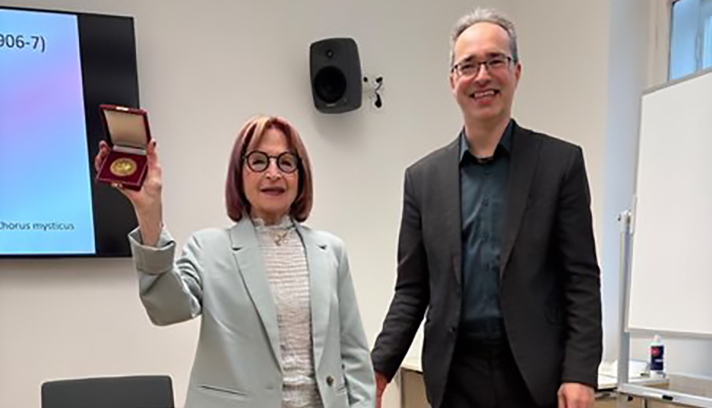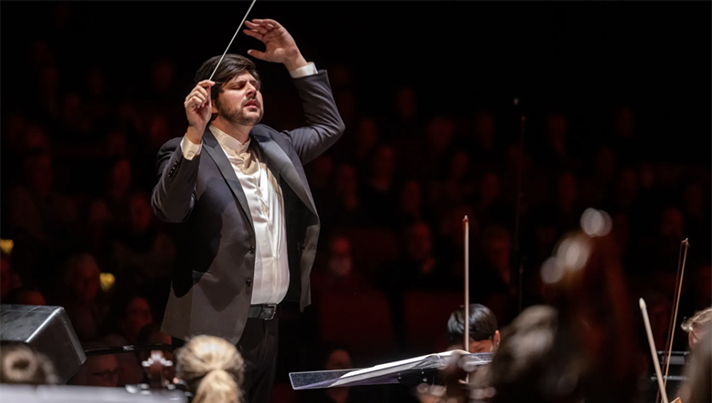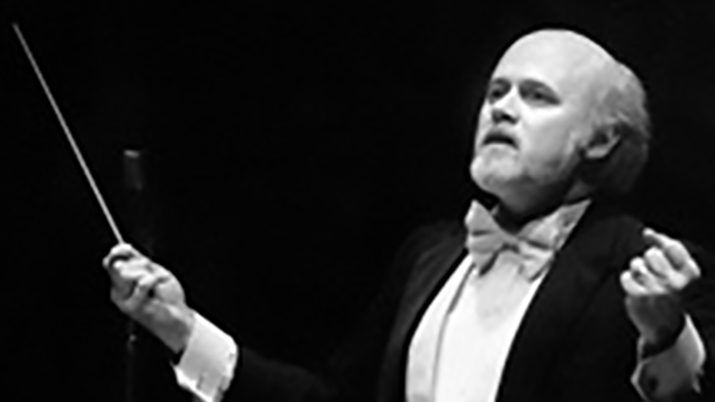By Aryn Strickland
As a composer, conductor, and teacher, Hussein Janmohamed (BMus’96, MMus’98, MMus’14) has built a career using choral music to challenge cultural stereotypes and reframe the conversation about race in Canada. Growing up as an Ismaili Muslim in rural Alberta taught him that discrimination was an unfortunate fact of life, even in a country celebrated for its multiculturalism. And for Muslims and many other groups, he says, the issue is as pressing now as ever.
“We are in a society in which there are a lot of negative representations of Islam, not only from the media but from small minorities within the faith,”
For Janmohamed, challenging these stereotypes starts with combating self-stigma. After graduating from UBC with the first of two Master’s degrees, he founded the Vancouver Ismaili Youth Choir to help Muslim youth understand their dual and often plural identities.
The decision was inspired by his own formative experiences: As a young teen he found that the bridge between his two identities, the Canadian and the Ismaili, was congregational singing. Within the Ismaili community Janmohamed took part in religious devotion through ginan (Indic devotional expressions) and zikr (remembrance of the Divine) — and the experience made him aware of how powerful collective singing can be.
In high school, he found that same feeling through choral singing, an artform traditionally associated with Christian churches. He began to rethink choral music as a more open mode of collective singing and used it to combine the musicality of devotional chants with choral songs.


Photo: Vincent L. Chan
“In choral music there are so many layers and choral singing actually shows us what harmony can sound like when all the layers of identities come together,” he says. “One of the key elements [of the Ismaili Youth Choir] was to find ways to express cultural diversity of our community because our community is world-wide with members in Syria, Iran, Western China, Afghanistan, Tajikistan, the Indian subcontinent, Africa and the diaspora. Our cultural expression is so diverse, so as a choir we started to explore what that sounded like. There wasn’t a lot of repertoire from that part of the world that spoke to our community, so we started to make arrangements.”
“In choral music there are so many layers and choral singing actually shows us what harmony can sound like when all the layers of identities come together.”
Janmohamed led the compositional work, often combining texts from the Ismaili culture with melodic structures from traditional choral songs. Janmohamed had already made a name for himself writing pieces that reflected multicultural perspectives. In 2004, he was asked by the Westcoast Sacred Arts Society in Vancouver to compose a piece with Russell Wallace from the Lil’wat nation to explore how Ismaili and Indigenous cultures could be harmonized.
Janmohamed’s unique focus on multicultural choral singing garnered success early on in his career, and led to high-profile performances and opportunities to found other diverse choirs. The piece he co-wrote with Wallace was performed for His Holiness the Dalai Lama during his visit to Vancouver in 2004. More recently he led two global Ismaili music ensembles to commemorate the 80th birthday and Diamond Jubilee of His Highness the Aga Khan.
Since assembling the Vancouver Ismaili Youth Choir, Janmohamed has gone on to be a founding co-conductor of Cor Flammae, Canada’s first queer professional choir in Vancouver, and the Awaaz Ensemble, a cross-cultural a cappella choral ensemble in Toronto.
“[The indigenous scholar and elder] Lee Maracle says that if we’re not at the table together, we can’t shape a shared future, and I think for me, how I come to the table is by bringing choral music to the cultures and traditions that I belong to,” Janmohamed says.
He says that while many audiences members tell him that they feel inspired by the interweaving of music from different cultures in his work — as in the songs currently performed by the Awaaz Ensemble — he has noticed that some people still don’t understand what his music tries to achieve. They will come to him and request songs that are less spiritual or, on the flip side, songs that sound more ‘Arabic.’
“There is not a great understanding of how music of the Muslim world is diverse or how historically Jews, Muslims, Christians and many other religious communities intersected harmoniously,” he explains.
Now working on a PhD at the University of Toronto, Janmohamed continues to explore this cultural divide in music through scholarship, while at the same time trying to close that divide through his work as a composer, conductor and singer of choral music. It is a slow, ongoing process, but Janmohamed believes we all have a desire to get there.
“We desire connection, we desire unity and healing. There is a therapeutic element to my work that tries to do that.”


